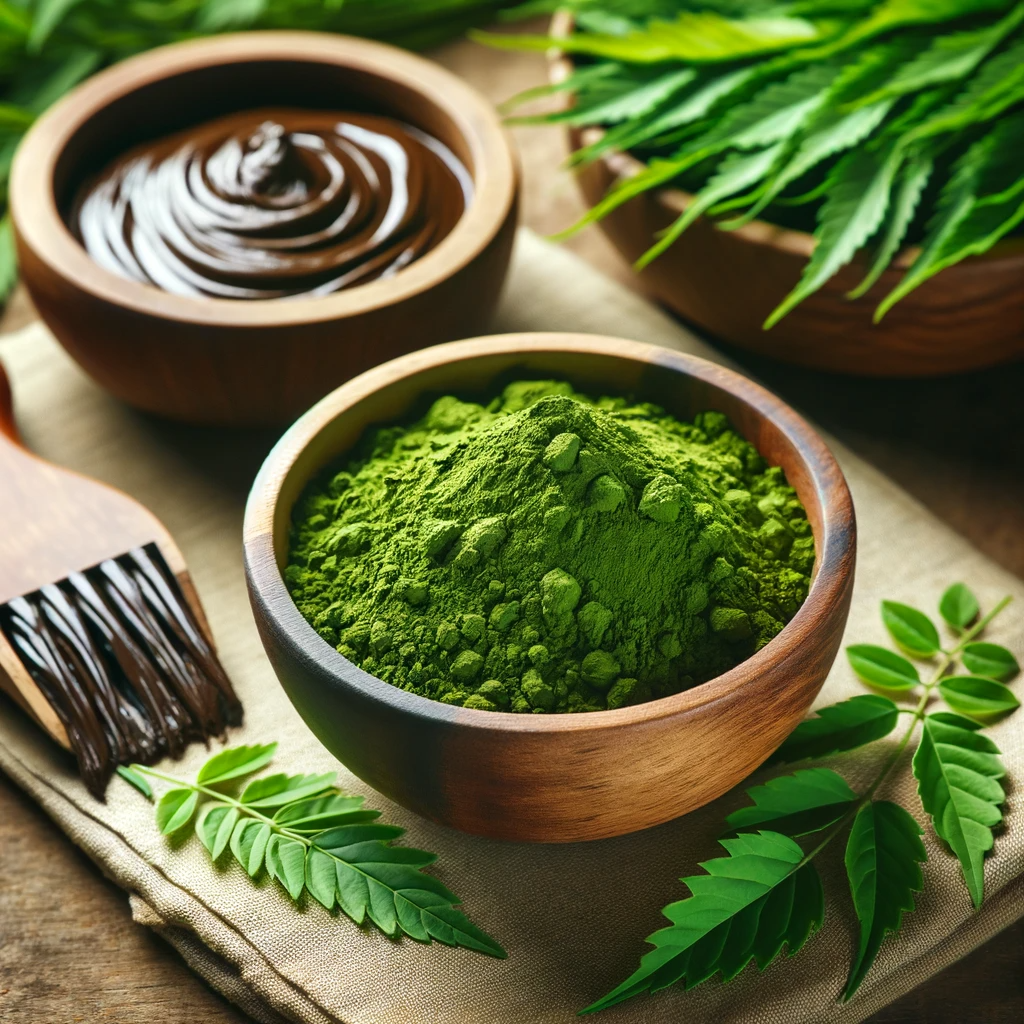
In the quest for vibrant hair colors and the covering of grays, many of us turn to hair dyes without a second thought to their composition. However, the stark reality is that these conventional dyes are laden with harsh chemicals such as ammonia, peroxide, p-phenylenediamine, diaminobenzene, toluene-2,5-diamine, resorcinol, and more. These ingredients not only pose a risk to our hair’s health, leading to damage from roots to ends and even hair loss, but also to our overall well-being.
Thankfully, nature offers us a bounty of alternatives that can color our hair beautifully without the adverse effects. Among these, Henna (or Mehandi) stands out as not just a personal favorite but also as a testament to the power and gentleness of natural hair dyes. Henna’s use dates back to ancient Egyptian and Indian civilizations, highlighting its long-standing trust and efficacy.
The Henna Advantage
Safety First: For those sensitive or allergic to chemical hair dyes, Henna presents a safe haven. It’s free from ammonia and harsh chemicals, offering a natural path to coloring your hair.
Fosters Hair Growth: Henna is more than just a dye; it’s a natural remedy that nourishes hair from roots to ends, encouraging stronger, thicker growth.
Protection: By coating the hair strands, Henna creates a protective layer that shields the hair from breakage, splitting, and damage from environmental factors like the sun and heat. This layer also adds volume, making thin hair appear thicker.
Health Benefits: Beyond hair care, Henna is known for its therapeutic properties, such as preventing headaches—a common practice in the Middle East—and healing scalp conditions by restoring the scalp’s acid-alkaline balance and preventing dandruff.
Tips for Using Henna
To ensure the best results with Henna, consider the following tips:
- Moderation is Key: Use Henna no more than once a month to prevent drying and brittleness.
- Application Conditions: Apply Henna to clean, wet hair for optimal results. Dry hair does not absorb Henna well.
- Handling: Avoid brushing or combing your hair with Henna in it to prevent damage.
- Post-Henna Coloring: Should you choose to switch back to chemical dyes after using Henna, wait until the treated hair grows out to avoid unexpected color results. For necessary dyeing, stick to dark colors.
- Avoid Mixing Oil: Adding oil to Henna can alter its coloring effect and reduce its permanence.
Embracing natural hair dyes like Henna not only aligns with a healthier lifestyle but also pays homage to centuries-old traditions that celebrated beauty in harmony with nature. By choosing natural dyes, you’re not just making a cosmetic choice but a commitment to your health and the environment. Whether you’re looking to revive your hair color or embark on a new hair health journey, the natural path offers a rich palette of possibilities that nourish, protect, and beautify.
